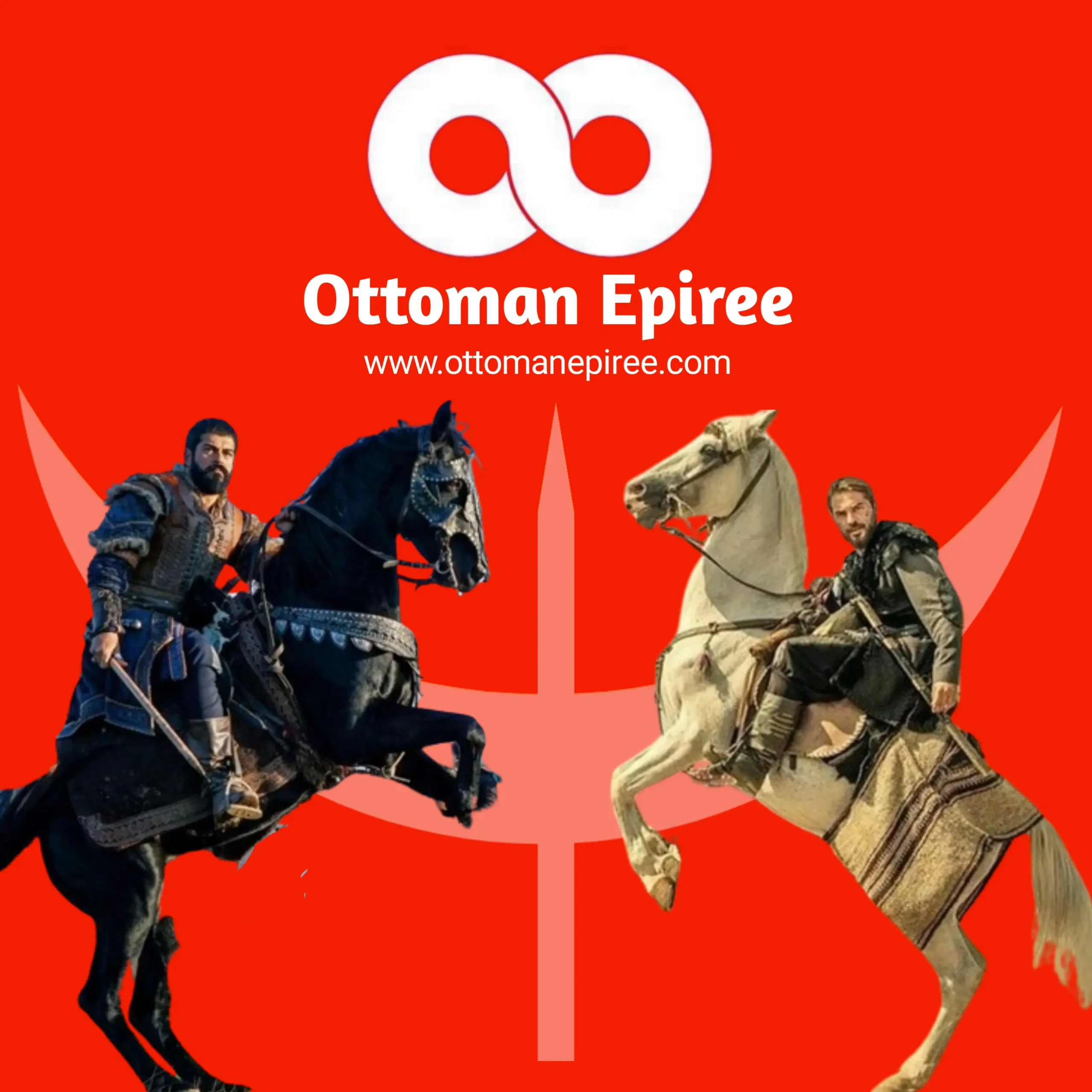Kudus Fatihi Selahaddin Eyyubi Season 2 Episode 40
False Accusations in the Caliph’s Palace
Kudus Fatihi Selahaddin Eyyubi Season 2 Episode 40
The episode opens with one of the most intense moments of the season as Saladin arrives at the Caliph’s palace. Instead of being greeted with order and respect, he finds his closest allies, Karategin, Adsız, Bozok, Ibrahim, Idris, and Urfali, encircled by guards and facing grave accusations. They are charged with setting fire to the palace, and the so-called evidence appears undeniable. This heavy scene sets the tone for the entire episode, emphasizing how manipulation and political deceit can be just as dangerous as swords on the battlefield. Saladin must navigate not only the defense of his men but also the crumbling trust within the palace walls, where lies are treated as truth and loyalty is punished as rebellion.
Rakif’s Shadow Over Cairo
As the accusations unfold, the figure of Rakif looms larger than ever. Backed by the Caliph, the merchant lord grows more ambitious in his quest to destabilize Cairo. Unlike open warfare, Rakif uses commerce, alliances, and covert schemes as his weapons. He is determined to pull Egypt into chaos, believing that confusion and disorder will weaken Saladin’s control. By working through political channels, Rakif exposes the fragile balance that keeps the capital together. His rise as a manipulative powerbroker shows how dangerous it can be when wealth and ambition combine against a leader struggling to hold the reins of authority.
Nizar’s Acts of Fear and Sabotage
In his plan to break Cairo, Rakif enlists the help of the Bedouin leader Nizar, whose knowledge of the land makes him an ideal accomplice. Together they orchestrate attacks designed to terrify the people and undermine Saladin’s leadership. The al-Azhar Madrasa becomes a prime target, symbolizing an attack not only on the city but also on education and culture. By striking such sacred and respected places, Rakif and Nizar hope to shake public confidence in the Vizier. These scenes demonstrate how enemies often exploit fear, not through direct battles but through actions that leave psychological scars across society.
Stirring Rebellion Within the Army
One of the most dangerous elements of Rakif’s plan is his ability to stir rebellion within Saladin’s own forces. Soldiers loyal to Shaver and others discontent with reform are turned into instruments of revolt. This manipulation threatens to split the army from within, creating cracks that foreign enemies can easily exploit. For Saladin, the challenge is no longer external invaders but the betrayal of those who should be his shield. The narrative underscores the timeless truth that a leader’s greatest vulnerability often lies not in facing open enemies but in managing dissent from within his own camp.
Crusader Influence Returns
The episode escalates further when Rakif secures support from the Crusaders. Their involvement shifts the conflict from local rebellion to an international struggle. The entry of Crusader forces demonstrates how quickly foreign powers seize opportunities when internal weakness is exposed. By aligning with them, Rakif shows that his ambitions know no boundaries and that he is willing to trade Egypt’s stability for personal gain. For Saladin, this alliance between local traitors and foreign adversaries represents the ultimate danger—a two-front challenge that tests both his military strategy and his political foresight.
Karategin’s Fight for Justice
Meanwhile, Karategin’s personal journey becomes a powerful subplot. Wrongly accused and trapped by false evidence, he decides to seek the truth by pursuing Cevher, the architect of the plot. Karategin embodies the struggle of the innocent against corrupt systems, reflecting the episode’s central theme of justice. His refusal to bow down to injustice, even under the threat of the Caliph’s judgment, symbolizes resilience and honor in an age dominated by deceit. Through Karategin, viewers are reminded that integrity can shine brightest when everything else appears lost.
Mevdud’s Uncertain Mission
Amid the chaos, a new figure enters Cairo, Mevdud, sent by Sultan Nur ad-Din under the advice of the Abbasid Caliph. His sudden arrival adds mystery to the unfolding events. Will he stand by Saladin and help restore balance, or will he complicate the already fragile situation? The episode deliberately leaves this unclear, inviting viewers to anticipate his role in shaping Egypt’s destiny. Mevdud’s introduction highlights the wider political network beyond Egypt, showing that every move in Cairo echoes across the broader Islamic world.
Saladin Caught Between Allies and Enemies
Throughout Episode 40, Saladin is portrayed not as an invincible warrior but as a leader weighed down by endless intrigues. He must juggle loyalty to Nur ad-Din, resistance from the Caliph, manipulations by Rakif, and the constant threat of Crusader interference. The story captures the heavy burdens of leadership, where every choice carries both risks and sacrifices. Saladin’s resilience is tested as he stands against a tide of conspiracies, proving that true strength lies not only in battle victories but also in the ability to endure political storms.
The Nile as a Symbol of Fate
One of the most striking narrative elements of the episode is the symbolic use of the Nile River. The story poses the question of whether the Nile will bring comfort to Saladin or serve the interests of his enemies. This poetic imagery elevates the episode beyond historical drama, turning it into a reflection on destiny and leadership. Just as the Nile gives life to Egypt, Saladin must decide whether his actions will nourish his people or inadvertently empower his adversaries. The river thus becomes both a literal and metaphorical mirror of his journey.
A Suspenseful Conclusion
Episode 40 closes with suspense and uncertainty. With Karategin fighting against false judgment, Rakif pulling strings behind the scenes, Nizar spreading terror, and Crusader forces waiting to exploit Egypt’s weaknesses, Saladin finds himself surrounded by enemies on all sides. The question remains: will he find a way to unite the divided forces of Egypt, or will the storm of betrayal overwhelm even his legendary leadership? This gripping ending ensures that audiences eagerly await the next chapter, while reinforcing the timeless message that leadership is tested most fiercely in times of betrayal and chaos.
Highlights Table for Kudus Fatihi Selahaddin Eyyubi Season 2 Episode 40
| Main Event | Details | Impact on Story |
|---|---|---|
| False Accusations | Karategin, Adsız, Bozok, Ibrahim, Idris, and Urfali are accused of arson. | Creates deep mistrust and tests Saladin’s loyalty to his men. |
| Rakif’s Schemes | Rakif, backed by the Caliph, spreads chaos across Cairo. | Shows the rising influence of merchants in politics. |
| Nizar’s Terror | Bedouin leader Nizar targets al-Azhar Madrasa and other sites. | Spreads fear, undermines Saladin’s reforms and authority. |
| Crusader Support | Rakif secures backing from Crusaders for his plans. | Raises the stakes, turning local unrest into an international conflict. |
| Mevdud’s Arrival | Sent by Nur ad-Din, Mevdud arrives in Cairo with unclear intentions. | Adds suspense, leaving viewers uncertain about his role in the conflict. |
Episode 40 Summary in bullet points
- Saladin’s loyal companions are falsely accused of burning the Caliph’s palace.
- Merchant leader Rakif spreads chaos across Cairo with the Caliph’s support.
- Nizar launches attacks on key sites like al-Azhar Madrasa to spread fear.
- Rakif secures help from Crusaders, making the conflict more dangerous.
- Karategin seeks justice against Cevher while Mevdud arrives from Nur ad-Din.
- Saladin faces betrayal, conspiracies, and rising threats from within and beyond.
Answer: Karategin, Adsız, Bozok, Ibrahim, Idris, and Urfali.
Answer: To create chaos in Cairo and weaken Saladin.
Answer: Attacks key locations, spreading fear.
Answer: Brings uncertainty and new challenges for Saladin.
Answer: Works with allies to counter conspiracies and restore order.

